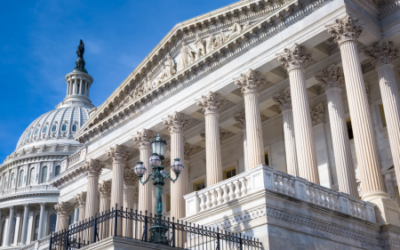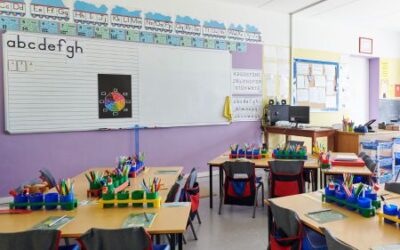Public libraries are no longer just repositories for books, newspapers and magazines. They are much more, and new libraries bear little resemblance to libraries of the past. Twenty-first century libraries are state-of-the-art facilities – innovative, thoughtfully designed and architecturally appealing.
Construction of new libraries is increasing nationwide, as are renovation projects that allow reconfiguration and repurposing of existing facilities. Whatever the project entails, there’s always a major technology component.
Libraries are becoming gathering places and the emergence of digital technology makes them appealing to all ages. Citizens like the benefits of being able to access all kinds of information, enjoy free Internet and Wi-Fi access, pick up the latest books and meet friends in a place with a friendly ambience.
Chicago is among a growing number of cities introducing innovative projects that feature co-located libraries and mixed-income housing. Last year, the city announced a partnership between the Chicago Housing Authority and the Chicago Public Library that led to construction on three co-location partnerships. There are plans now for two more. City officials say that creating these shared spaces helps bring diverse communities together.
Late last year, the Boise City Council approved an architectural contract for a new Main Library that will cost approximately $85 million. To meet the requirements of a 21st century library, the Boise facility will feature a “Gathering Space” that connects the library to shared café and retail establishments. It will also feature emerging technology tools, training, free public meeting rooms, small business resources and Wi-Fi and Internet access.

Finding a “quiet zone” on a college campus can be difficult. In the recent past, many students sought refuge in campus libraries but today, students want the latest technology, free Wi-Fi and study areas for individuals or groups. A prime example of how college campuses are responding to those needs is an $8.3 million renovation of the Alkek Library at Texas State University in San Marcos. The renovation will include adding a full-service café, a new makerspace area where students can create functioning prototypes with 3-D printers, a digital design center and video/sound production studios.
Upcoming library projects throughout the country provide an abundance of contracting opportunities across a variety of industry sectors. Below is a sampling of those projects:
- The South Bend Council in Indiana approved the St. Joseph County Public Library’s proposed $36 to $38 million renovation and expansion project. Another $15 to $17 million is allocated to overhaul the downtown Main Library.
- The Milwaukee Public Library is seeking a partner for a project to replace a branch library with a mixed-use building and a new library building. The project may include housing, retail, office or other appropriate commercial use. Three other Milwaukee branch libraries have already been replaced by new libraries with upper level apartments. Cities are paying for new libraries with various types of collaborative initiatives.
- Voters in Bayport and Blue Point on Long Island in New York recently approved a bond issue that authorizes spending $16.85 million to buy a convent and repurpose it as a new public library. The expansion will increase the area’s current library space by 100 percent.
- The Fayetteville, Arkansas, Planning Commission approved a $49 million development plan for expansion and renovation of the Fayetteville Public Library. The library will also benefit from a newly approved $6.1 million library budget for next year, which includes more than $880,000 for facilities and more than $600,000 for information technology.
- Six Miami-Dade County libraries are awaiting word on $3 million in state library construction grant funds that will help complete more than $31 million in projects. Projects include a $2 million overhaul of the Main Library downtown that includes expanded electrical and data infrastructure, 65 computer stations, a multipurpose auditorium, renovated restrooms and café and concession areas; a proposed new 15,000-square-foot Hialeah Gardens Branch Library that is expected to cost about $10.1 million; and a new proposed $9.3 million Doral Branch Library.
- Currently in the pre-design phase is a $66 million renovation project at California Polytechnic State University. It includes expansion of the Academic Center and Robert E. Kennedy Library. Construction is expected to begin in 2020.
Public libraries are happy places where learning and living take place. They enhance quality of life for all citizens. Cities want more libraries because they attract people and retail. Universities want better library facilities because they help with recruiting students. The demand for libraries is not expected to subside anytime soon. And, until that happens, there will be a myriad of attractive contracting opportunities.
Since 1995, SPI’s procurement consulting services have helped companies of all sizes effectively navigate the various jurisdictions of government procurement. Contact them today to learn how they can help grow your business.






